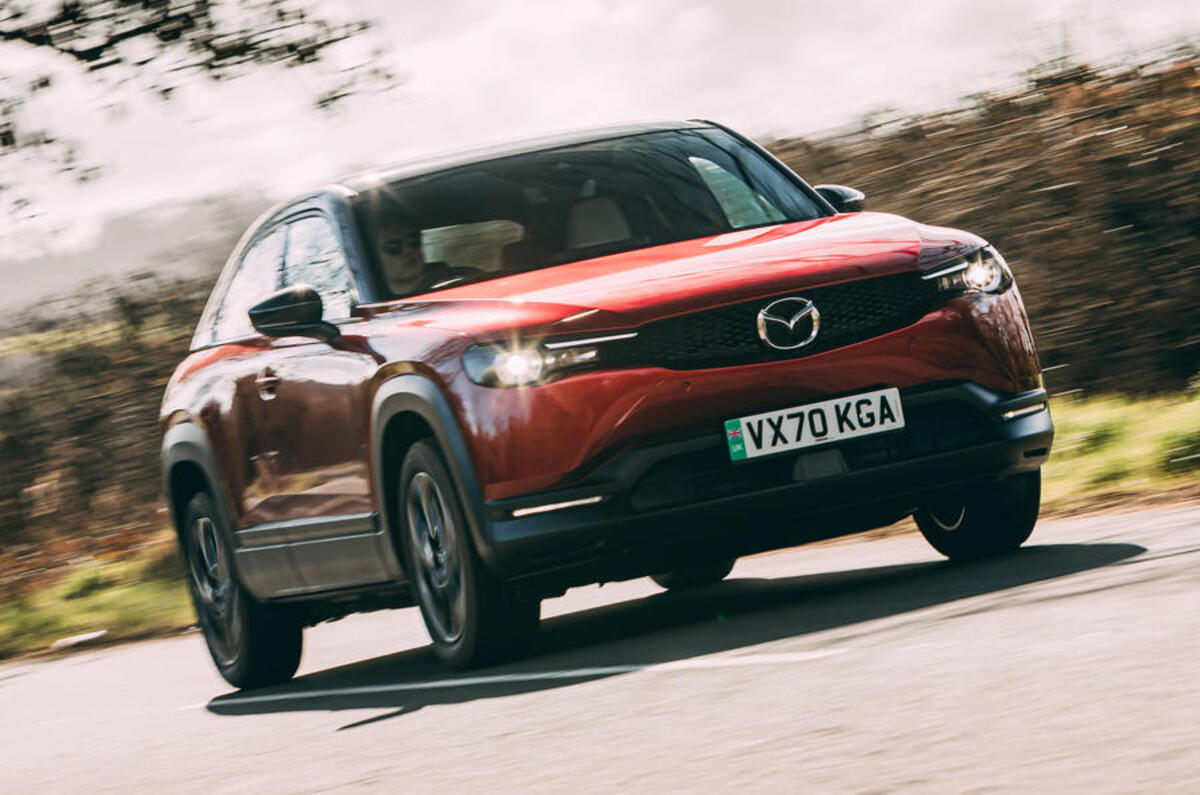Vehicles powered by e-fuels complement rather than compete with electric vehicles and should be considered as a viable alternative on the path to carbon-neutrality, according to today’s guests on the Autocar Business seminar.
Mazda European research director Christian Schultze said: “We believe that e-fuels aren't in competition with the electrification route but complement it. E-fuels can be used already on existing cars - and future cars. Having two pathways to follow can get us to climate-neutrality faster and better.
"There are pros and cons of both. Combustion engines are hard to make as quiet as an EV, while long-distance journeys are harder to make with an EV. Let's use the good points of both technologies to drive forward carbon-neutrality rather than betting on one technology.
Steve Sapsford of automotive consultancy SCE added: "It's not trying to replace our journey to electrification. Banning internal combustion engines might be picking a fight with the wrong enemy. Stopping our dependence on fossil fuels is where we should be focused.”
Sapsford said that the immediate focus should be using e-fuels as 'drop-in' fuels, which can be mixed with existing gasoline: “Drop-in fuel meets the current specification - and the engines, consumer and infrastructure shouldn't notice any difference. It’s perfectly feasible to use [e-fuels] as drop-in fuel.”
Schultze predicted that e-fuels pricing would be on a par with petrol by 2030 in Europe. He said: ”By 2030, it can be around one euro [per litre]. When you factor in CO2 taxation on fossil fuels, I think gasoline prices will become even higher. E-fuels are very very close to being on a par with gasoline prices.”
Shultze, Sapsford and Paddy Lowe – the founder of Zero Petroleum and an ex-Formula 1 engineer – all called on legislators to consider well-to-wheel emissions rather than just tailpipe emissions as a means to achieve carbon-neutrality.
Schultze also said e-fuels should be considered for similar subsidies to EVs: “We need to find solutions that lead us to the CO2-neutral target. What's the reason for ruling out for technologies?”
Speaking on motorsport and e-fuels, Lowe commented: “Motorsport is generally a great platform for pioneering new approaches and new technology and giving them publicity. We’ve had Formula E, I think we will see hydrogen competitions and we will definitely see synthetics.”





Join the debate
Add your comment
I am all for any alternatives to EVs. That doesnt mean EVs cant provide the majority of transport, just that i dont believe half a ton of batteries that dont last forever are the perfect solution for all cars
City cars are small and cheap, and increasingly rare because they do not work as an EV. Yet over their life times they dont travel far enough to justify the CO2 debt from making the battery. Same applies to specialist cars. Astons, Lambos, Morgans etc probably never go far enough to justify the Battery CO2 debt, yet man made fuels dont have the issue that fossil fuels do.
Then there are all the cars already on the road, many of which should still be running around in 2050 and well beyond. If some of that fuel was man made and not made of dinosaurs wouldnt that help?
Unless i am actually banned from driving petrol i imagine i always will, but dont really care where the petrol comes from. I think synthetic fuels need a space in the future of vehicle fuel
All case studies on e-fuels are clear : producing e-fuel is so energy intensive that when produced it should be used to decarbonize air and sea travel and it would be wasted on land trasportation where there are alternative, cheaper, greener and more efficient solutions " running just a fraction of vehicles on e-fuels would require offshore wind turbines covering all of Denmark . That doesn't make any sense"
citation from the trasport&environment study on future mobility .
Absolutely this. I've always been keen on cars, but I'm even fonder of human beings. "E fuels" are not emission free. They're a scam attempt of the self interested which plays well with the reactionary and obtuse.